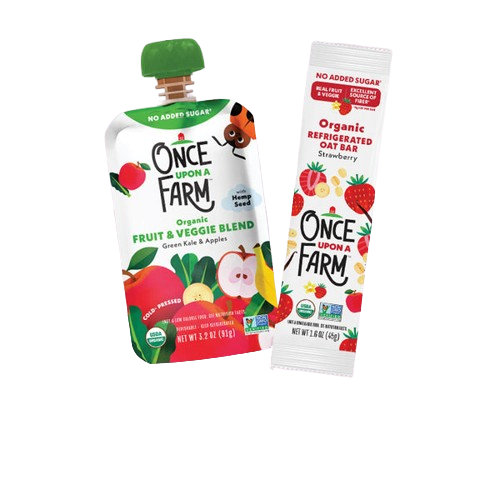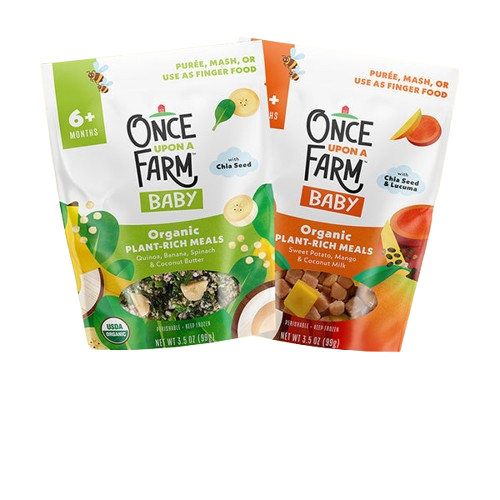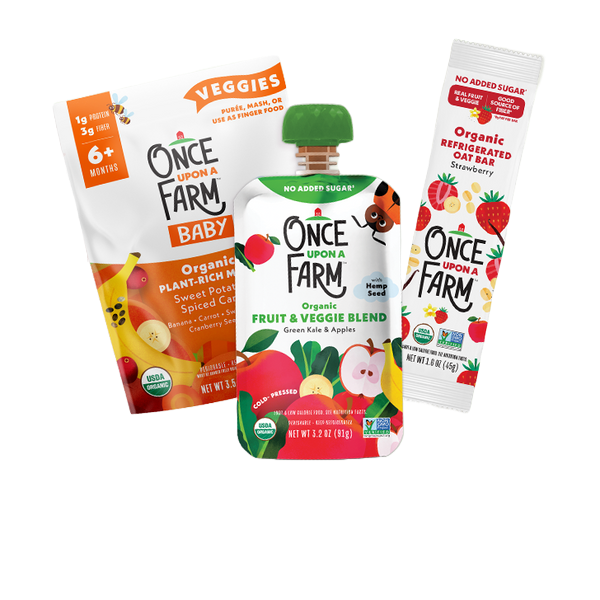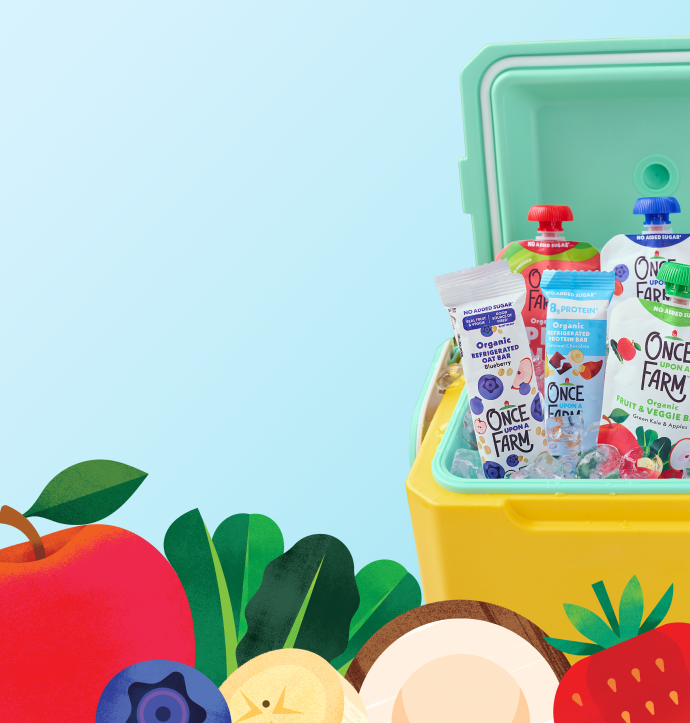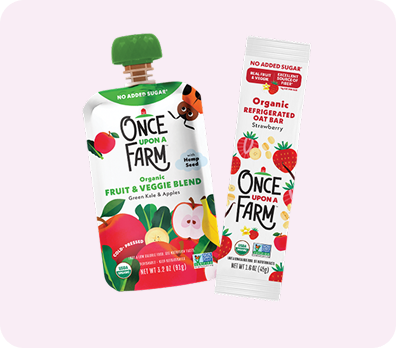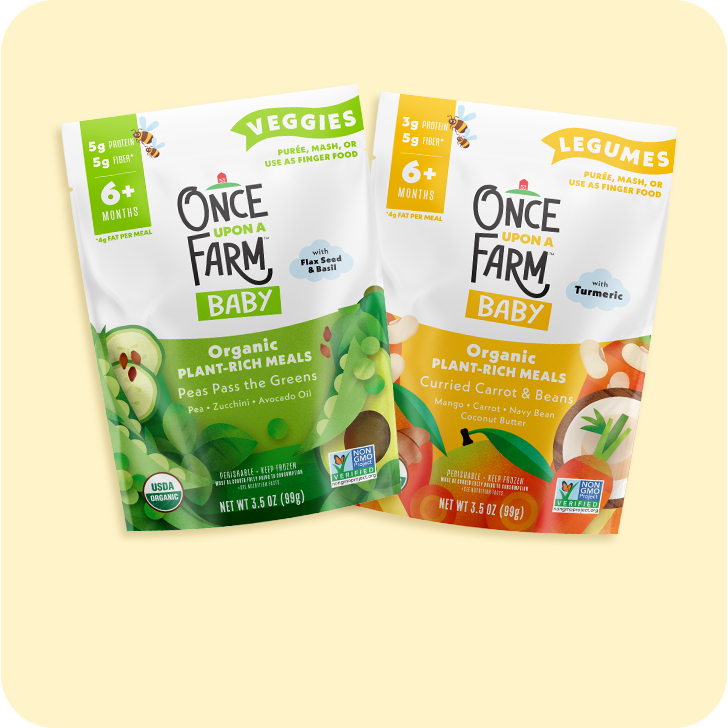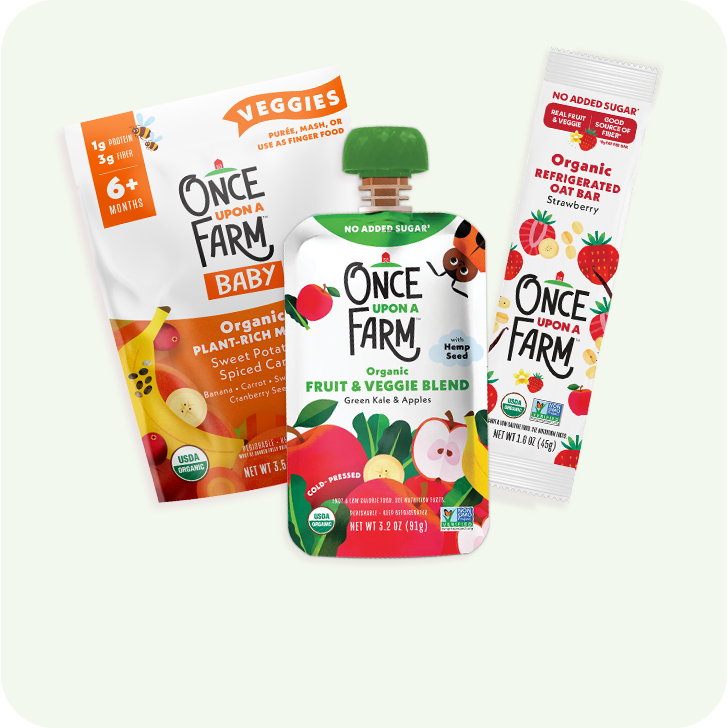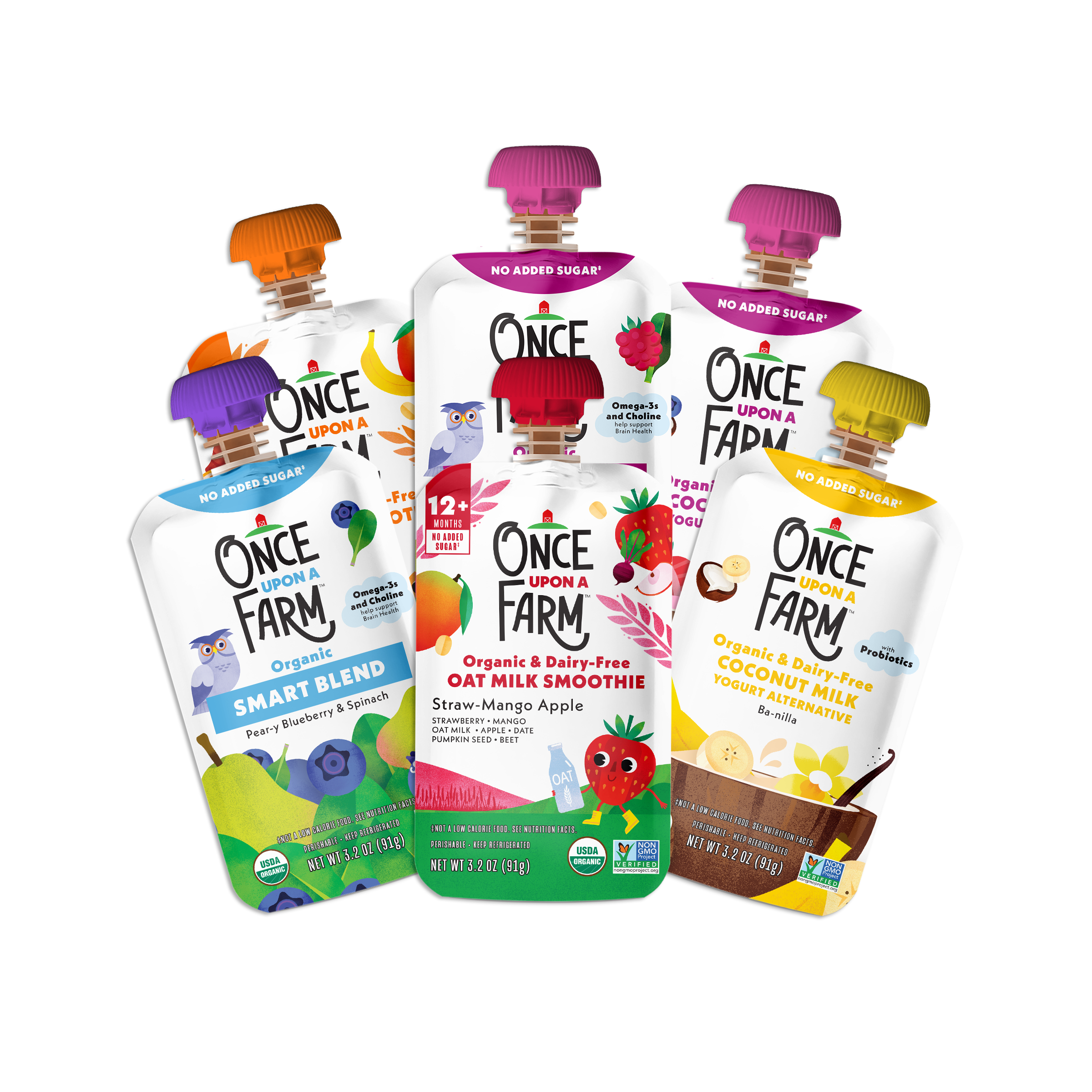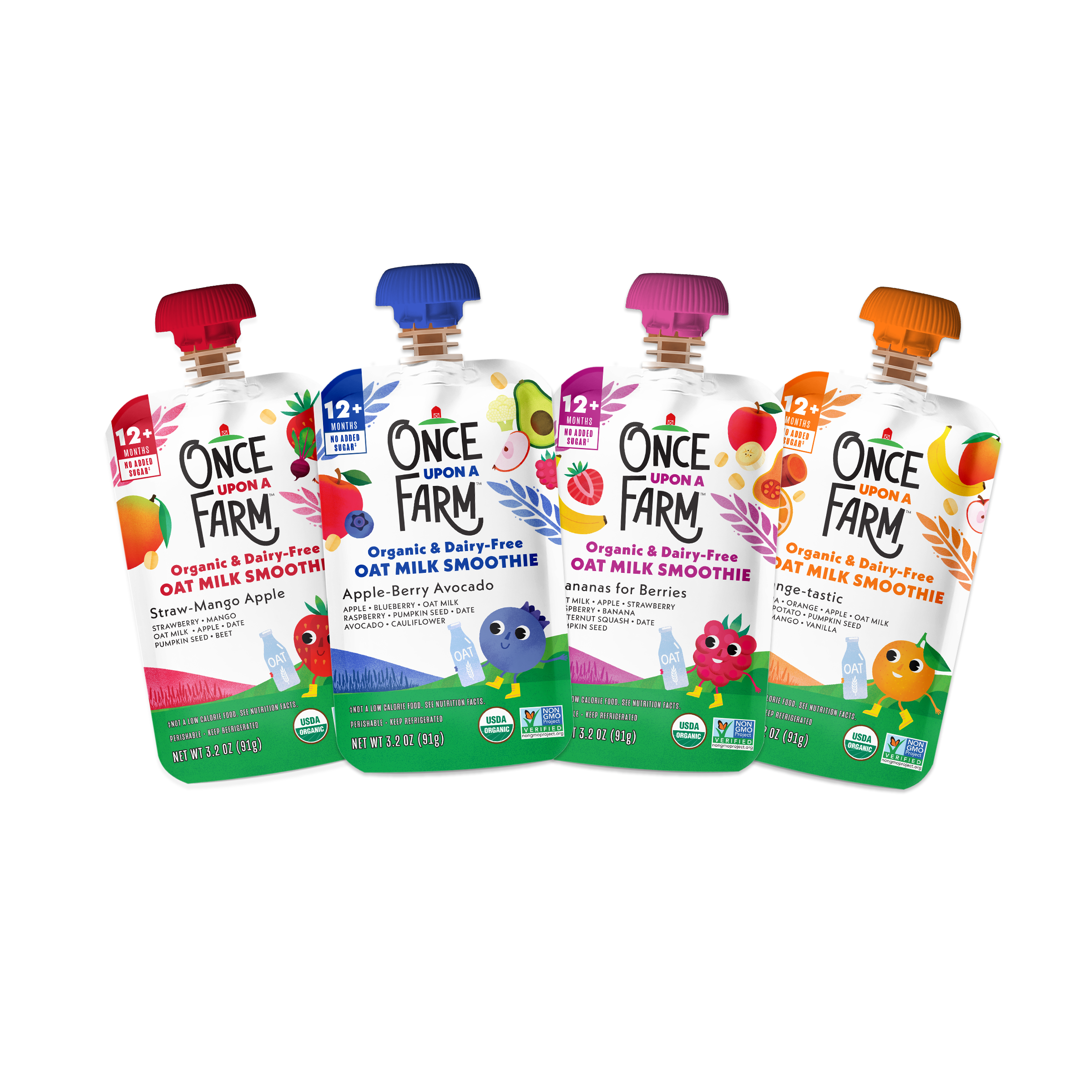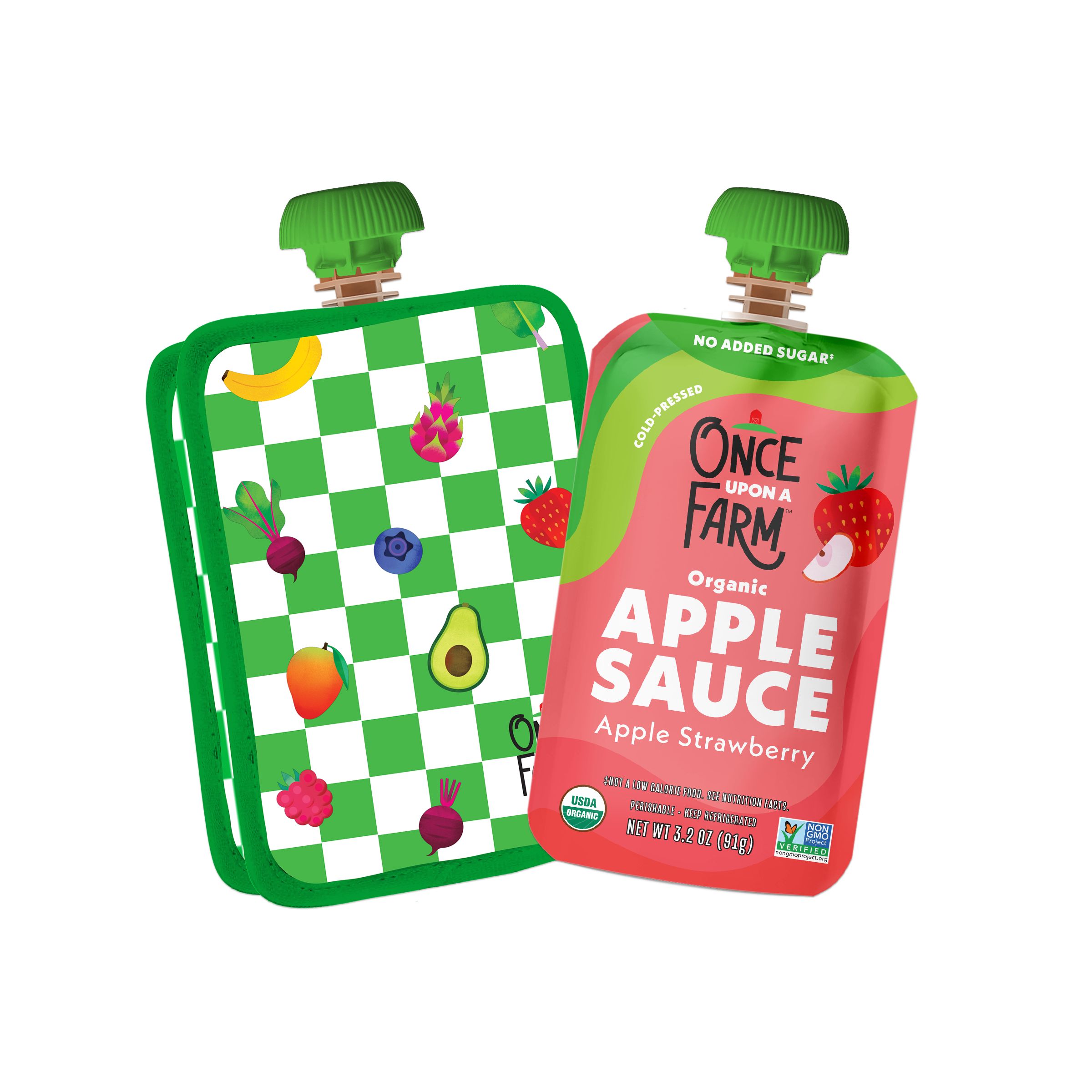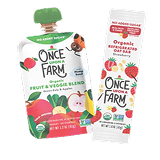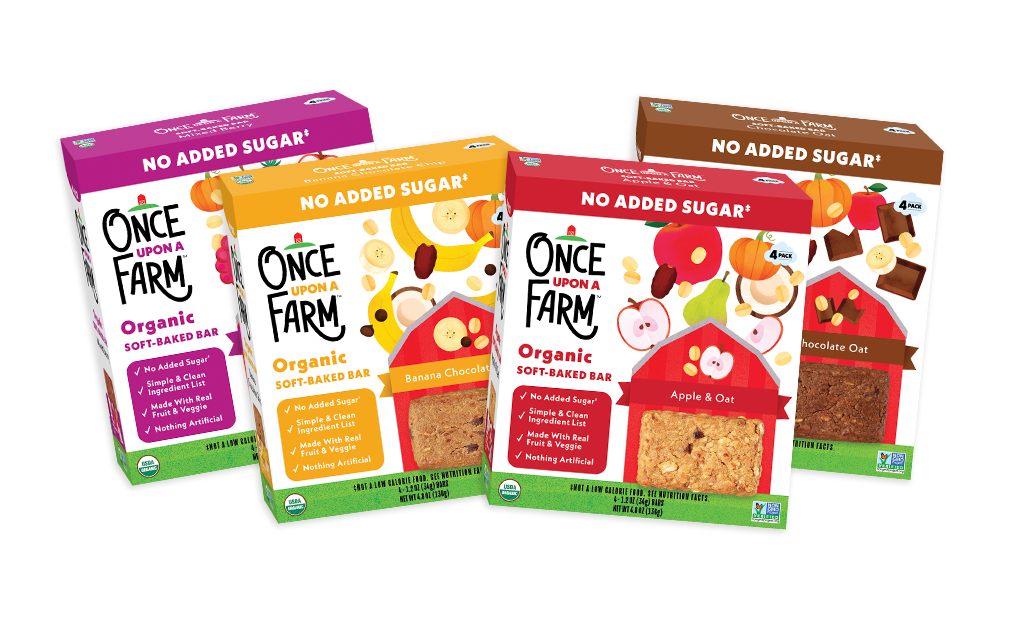This blog is for informational purposes only and does not provide medical advice; see our full disclaimer for more information.
As parents of young children—and likely regular consumers of media—it can be easy to click our way into a pit of parenting anxiety, including regarding food choices for our little ones. You read a headline, and the mental swirl begins. Example: seed oil. One day you’ll read that seed oil free is the only way, the next that it’s A-OK. When in doubt, go to the experts. We spoke to pediatric dietitian Kacie Barnes, MCN, RDN, LD to get the truth behind seed oil.
What are seed oils?
“Seed oils are the oils that are extracted from the seeds of plants,” Barnes explains. Some popular ones include canola oil, sunflower oil, safflower oil, and soybean oil. In comparison, other (non-seed) oils like avocado oil and olive oil are extracted directly from the flesh of the fruit.
Why does seed oil get a bad rap?
There are many reasons why people opt for no seed oils. One such reason may be the specific type of polyunsaturated fatty acids they contain: Omega-6 fatty acids. As Barnes explains, “There is some misinformation floating around that Omega-6s are inflammatory or increase the risk of cardiovascular disease.” She says this is because a tiny portion of dietary Omega-6s can be converted in the body to a byproduct acid that has a role in inflammatory processes.
However, she continues, "a 2017 meta-analysis of dozens of randomized controlled trials (RCTs—the gold standard scientific study type) showed very little evidence that dietary consumption of Omega-6s has an effect on inflammatory markers in the body. In fact, higher dietary intake of Omega-6s may be more correlated with processes in the body that actually FIGHT inflammation.”
It is worth noting that there are other popular foods relatively high in Omega-6s (and could be considered inflammatory), including walnuts, sunflower seeds, hemp seeds (and lots of other nuts and seeds), and tofu. “All of those foods are wonderful foods to include in a varied diet as they are sources of many important health-promoting nutrients,” Barnes says. With that in mind, “you can have a perfectly good diet without any seed oils in it,” she notes, as you can get Omega-6s from the foods listed above.
Are there good properties of seed oils?
Research finds health benefits from consuming seed oils as part of an overall healthy diet, noting the benefits of Omega-6s. This article by the American Heart Association outlines the findings.
As Barnes shares, “Omega-6s contain something called linoleic acid (LA), which is an essential nutrient that our bodies need and cannot produce on their own.” As such, seed oils are one way to get this necessary nutrient in our diet.
Barnes says seed oils can be especially beneficial “when seed oils are replacing animal-based saturated fats options like lard or butter.” She continues, “Consumption of Omega-6s and circulating levels of Omega-6 are inversely related to cardiovascular health meaning higher intake actually is correlated to better heart health.”
If you go seed oil free (or cut back), what are easy swaps?
As Barnes says, “The whole entire diet is much more important than any one food item or ingredient that is a part of that.” For parents who cook at home and are feeding their child a diet of whole foods, focusing on variety and limiting added sugars, she’s not worried about things like seed oils. “If someone has a diet that’s made up of mostly convenience foods, fast foods, and ultra-processed foods, then oils (among other things in those foods) could be an issue,” she explains, “but not because of the seed oils themselves.”
To illustrate, she offers an analogy: grapes and blueberries. Blueberries have one of the highest antioxidant levels of all fruits and vegetables, plus a good amount of fiber, and other vitamins and minerals. Grapes have less antioxidants, less fiber, and more sugar. This doesn’t make grapes bad for you—it just means they don’t offer as much nutrition as blueberries.
“If you think of avocado and olive oil like the blueberries of the oil world, you can think of seed oils as the grapes,” Barnes says. “We don’t need to fear them so much as think about how to also include other healthy options in the diet as well.”
So, in conclusion, seed oil is not objectively bad for you. You may decide to use it, cut back on your use, or avoid it entirely, but the decision—like all things parenting—is yours to make!

